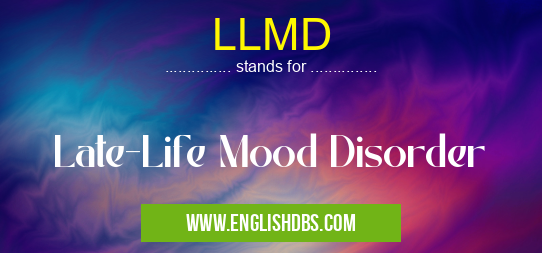What does LLMD mean in PSYCHIATRY
LLMD (Late-Life Mood Disorder) is a mental health condition that affects individuals over the age of 60. It is characterized by the onset of a depressive or bipolar disorder after the age of 65. LLMD is distinct from other types of mood disorders that occur earlier in life and may require different treatment approaches.

LLMD meaning in Psychiatry in Medical
LLMD mostly used in an acronym Psychiatry in Category Medical that means Late-Life Mood Disorder
Shorthand: LLMD,
Full Form: Late-Life Mood Disorder
For more information of "Late-Life Mood Disorder", see the section below.
» Medical » Psychiatry
Symptoms
- Depression: Persistent sadness, hopelessness, loss of interest in activities
- Mania: Elevated mood, increased energy, decreased need for sleep
- Mixed episodes: Symptoms of both depression and mania
- Cognitive impairment: Difficulty with memory, concentration, and decision-making
Risk Factors
- Age (over 65)
- History of depressive or bipolar disorders
- Vascular disease
- Medical conditions (e.g., cancer, heart disease)
- Social isolation
- Stressful life events
Diagnosis
- Clinical evaluation by a mental health professional
- Assessment of symptoms, medical history, and cognitive function
- Exclusion of other medical conditions that may cause similar symptoms
Treatment
- Medications: Antidepressants, mood stabilizers
- Psychotherapy: Talk therapy to address underlying issues and improve coping mechanisms
- Lifestyle changes: Regular exercise, healthy diet, adequate sleep
- Social support: Encouraging involvement in social activities and connecting with loved ones
Final Words: LLMD is a serious mental health condition that can significantly impact the quality of life of older adults. It is important for individuals and their caregivers to be aware of the symptoms and seek professional help if needed. Early diagnosis and appropriate treatment can improve outcomes and prevent long-term complications.
